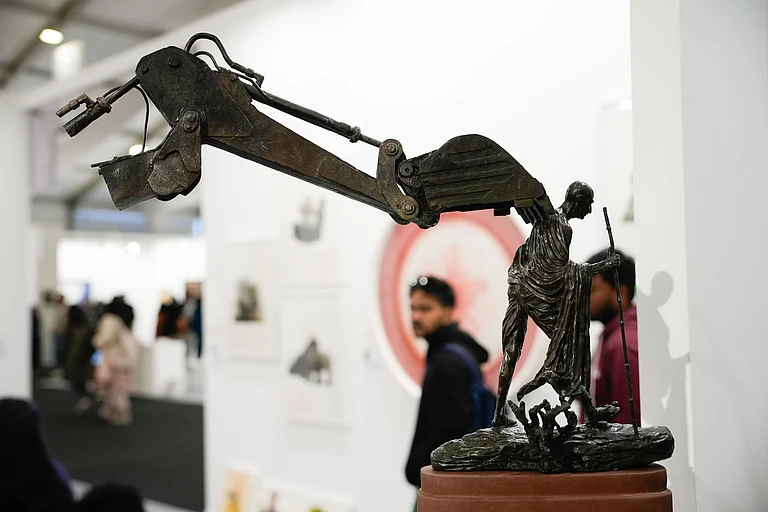I worked my way through all 450-plus pages of Kiran Nagarkar’s The Extras in the hope of discovering what drove him to write this novel. His characters are puppets, devoid of all existential gravity. They are buffeted about, rather like clowns in a circus—there are loud reports of slaps and blows, great clouds of dust and talc are released, but no one is hurt. And none of it seems to matter anyway—it is mere distraction, a way of keeping the audience engaged while the main act is being prepared.
This could have been novelistic technique, a way of registering the ambient noise of pain and struggle, the anonymous background of subcritical tragedy against which the characters are enabled, by their creators, to lead lives of moral gravity. No such luck here. Nagarkar’s characters do not rise to significance. When his protagonists are swindled out of their and their families’ savings—fake visas, the promise of jobs in Dubai— it merely provides the occasion for some weak humour, some limp prose: “They parted company then, the two young men. But Eddie was convinced that in some way or other, Ravan was responsible for the fake passports and the loss of money.” No more, not then, not in the next chapter, never.
Nagarkar’s current instalment of the epic of his slumdogs, Ravan and Eddie, runs them through the familiar properties of the Maximum City repertoire. In mechanically alternating chapters featuring first one and then the other, we are treated to the underworld don and the Prohibition-era speakeasy, the Bollywood grotesques and the sleazy businessmen—predictable stuff. Ravan and Eddie try every trick to break out of their hopeless condition, condemned forever to scrabbling at the bottom of the heap. But chances being what they are in the crab basket of poverty, nothing works. Until, at the end, in a strangely suffixed chapter, they break into success. Having waited for several hundred pages already, I suppose we’ll now have to wait for Nagarkar’s next. Meanwhile.
I suppose it must take courage to edit a winner of the Sahitya Akademi prize, but Nagarkar should demand that he be edited more rigorously. As it stands, not only is the material stale, but there is little to brighten up the presentation either. The prose—indistinguishably, both in the authorial voice and in the attributed “free indirect”—is unrelentingly, if also paradoxically, flaccid as well as wooden. Its sole leavening is a kind of plodding jokiness that only deepens the dreariness. I know that it takes a lot of work even to produce a bad book, but sentences such as these must be strangled at birth: “He had been felled by what surely was the broadside of a whale’s tail.” And, “The lowering sky was grumbling loudly.” And, “...a voice as desolate as a gutted city where all the inhabitants had perished and not a single bird left to chirp.” And, finally, “He wished he could rip out his innards if only to avoid the sight of the pain he had caused her.” And these examples are drawn from a mere fifteen pages!
As it happens, Nagarkar recommends his editor for canonisation on the grounds of her “heroic perseverance”, etc. Necessary, I gather, but alas, not sufficient. It takes a miracle, or two.


























